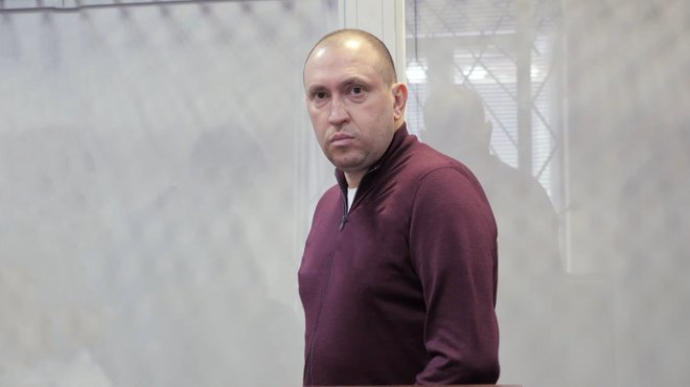

Today, October 10, the ECHR issued a judgment to reject the complaints of Vadym Alperin, known as the “king of smuggling.”
The events investigated by the court in Strasbourg related to the arrest of Alperin by NABU detectives in November 2019, as well as the subsequent selection of an interim measure against him and the forfeiture of UAH 35 million out of the UAH 77 million bail due to violation of procedural obligations.
Alperin complained to the ECHR about the following:
- the arrest by the NABU was illegal, and the court’s decision on detention and the amount of bail violated his freedom of movement;
- the presumption of innocence was violated when the President of Ukraine published a statement. Volodymyr Zelenskyy called on the public to help law enforcement agencies find Alperin and also promised a reward to a person who would help bring the smuggler to the long-awaited liability;
- The Appeals Chamber of the HACC unlawfully recovered half of the bail posted for Alperin in April 2020, which is a violation of Article 1 of Protocol No. 1 to the Convention;
- his rights, as set out above, were restricted for a populist purpose, in violation of Article 18 of the Convention.
The ECHR judgment regarding Alperin’s arguments was as follows: about the violation of the right to freedom of movement—clearly ill-founded; about the violation of the presumption of innocence—in the opinion of the court, the applicant failed to exhaust the effective domestic remedies. The court considered the recovery of bail into the national income on its merits and recognized the absence of a violation of rights.
This is an important decision for Ukraine because it examined arguments regarding the legality of detention by NABU detectives, the amount of bail, as well as measures to respond to procedural violations of those involved in the cases.
This is an important decision for Ukraine because it examined arguments regarding the legality of detention by NABU detectives, the amount of bail, as well as measures to respond to procedural violations of those involved in the cases.
What exactly did the ECHR decide?
If we consider this decision in more detail, the European Court of Human Rights indicated that the complaints about the illegal detention and the subsequent selection of an interim measure to Alperin were clearly ill-founded. Detectives have the right to detain a person without the decision of the investigating judge, and the HACC, for its part, properly justified the decision to keep Alperin in custody.
The ECHR found the bail amounting to UAH 77 million justified. The HACC assessed the applicant’s ability to pay the required amount and provided justification for its decision. The applicant did not refute the NABU investigator’s statement regarding his assets and did not prove that he had provided the authorities with the necessary information about his financial situation. What is more, the bail was paid three days after the decision on it had been adopted, and Alperin gave no indication of any excessive difficulties in raising the funds.
The ECHR did not consider the arguments about the violation of the presumption of innocence by the President of Ukraine in detail because Alperin did not exhaust domestic remedies regarding this complaint. He could have filed a civil suit for defamation or raise the issue within criminal proceedings against him.
The applicant also believed that the forfeiture of part of the bail as a reaction to his violation of procedural obligations was disproportionate and unlawful.
The ECHR established that the HACC Appeals Chamber, which adopted such a decision, carefully considered the arguments of the parties and properly justified its decision, limiting the forfeiture to half the amount of the bail for reasons of proportionality.
In addition, Alperin believed that his rights were limited for a purpose different from that provided by the Convention, namely, to demonstrate the government’s fight against corruption in a populist manner. The court argued that no evidence or further justification was provided that would prove the existence of an ulterior motive on the part of the President or other representatives of the authorities “beyond reasonable doubt.” The very fact that the actions took place in the context of the fight against corruption does not prove the existence of an unlawful purpose.
Currently, Alperin’s case is undergoing a preliminary trial after the HACC AC overturned its closure due to the “Lozovyi’s amendments.” In July 2024, the first instance rejected the defense’s repeated request to close the case.
Alperin believed that his rights were limited to demonstrate the government's fight against corruption in a populist manner. The court argued that no evidence or further justification was provided that would prove the existence of an ulterior motive on the part of the President or other representatives of the authorities.






